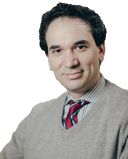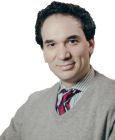Psychiatry
Psychiatry and Society: Q&A with Dr. Bandy Lee
An interview with a violence prevention expert.
Posted August 17, 2020
For "political junkies" on Twitter, Dr. Bandy X. Lee, M.D., might be a household name. She is known for editing the book The Dangerous Case of Donald Trump as well as for reinforcing its message on Twitter where she has gained a large following. Her book was not a fringe, pseudo-scientific pursuit; rather, it was written and co-authored by world-renowned experts in psychology, psychiatry, and violence prevention, including Philip Zimbardo, the social psychologist known for demonstrating the power of the situation over personality in determining behavior in the Stanford Prison Study.
While the news has recently focused on the mind of Trump in regards to "the cognitive test" he took—i.e. the Montreal Cognitive Assessment (MoCA)—and mentioned pop psychology constructs such as "malignant narcissism" or just narcissism, there has been a dearth of serious consideration of what a leading expert on violence prevention has been long sounding alarm bells over.
In the context of recent events, such as violence in Portland, the killing of George Floyd, increase in the prevalence of hate crimes (e.g., in Colorado), and mass COVID-19 death, consulting experts on the area of social violence from a forensic psychiatry perspective is arguably needed now more than ever—to fill this gap and to try and understand more about why there is this dearth of experts on the risk of violence to begin with.
Where did you do your medical training? I saw on your CV that you worked at Bellevue in NYC, and the Chair of Psychiatry at Tufts mentioned to me that you were chief resident at Harvard/Mass General Hospital. Is that accurate?
Dr. Lee: I completed medical school at Yale, internship at Bellevue, and residency at Massachusetts General Hospital, where I was chief resident. I remained at Harvard while also a research fellow at the National Institute of Mental Health, until I took a faculty position at Yale.
What is your publication history? I know there is a textbook and an empirical study contrasting mortality rates across Democratic and Republican presidents. Could you elaborate on these and other publications?
Dr. Lee: I published about 100 scholarly articles and chapters, most having to do with public health and violence prevention. In the one you mention, a senior colleague insisted that we research political party as an environmental variable. I did not like “mixing in politics” at first, but data over 110 years astonishingly showed that Republicans were associated with roughly doubling violent death rates, whereas Democrats were associated with halving them, almost without exception—it was quite a discovery. I also edited 15 academic books and journal special issues and wrote what is considered the most comprehensive textbook on violence to date.
Before authoring The Dangerous Case, what did you do for work and what was your academic position?
Dr. Lee: I have been clinical faculty at Yale School of Medicine for 17 years, mostly teaching at Yale Law School. I taught students clinical interviewing, detecting potential mental health issues, and knowing when to consult mental health experts, through Immigration Legal Services, Criminal Justice Clinic, and Veteran Legal Services. I helped supervise forensic psychiatry fellows on cases. I treated patients in prisons and state hospitals and consulted with governments on prison reform.
You are a leading expert on predicting and preventing violence. What words would you choose to describe your expertise?
Dr. Lee: I joined a team of consultants at the World Health Organization in 2002, when it was just launching its landmark World Report on Violence and Health. This began a revolutionary project of approaching violence as a public health rather than a security or criminal justice issue. I helped bring together scholars and policymakers for implementing recommendations. Large-scale changes in 133 countries—including new laws, widespread services, and police reform—resulted in a reduction in global homicide by 16 percent in 12 years.
What is your expert assessment of the risk posed by the POTUS, and could you explain how psychiatry plays a role in your assessment?
Dr. Lee: [In my view,] the current U.S. presidency poses a unique and grave danger to public health for psychological reasons. All health professionals have a duty to society, outlined in the preamble of our professional ethics. Preventive psychiatry, as a branch of public health, involves population-level interventions.
Could you describe what it has been like trying garner media attention for the cause of removing POTUS or to assess his capacity/fitness?
Dr. Lee: My purpose for media attention was to open a national conversation so that a solution would be possible. When I met with Congress members privately, they said their ability to take action depended on our educating the public. But the more successful we were, the more [...] major media, [...stated...] we were practicing “armchair psychiatry” and using “psychiatry as a political tool.” [The American Psychiatric Association] guidelines encourage psychiatrists “to serve society by advising and consulting with the executive, legislative, and judiciary branches of the government.”[...] Apart from the president’s niece, almost no media would have mental health experts comment on the president’s mental health. Thousands of us are looking to speak, while the public starves of our expertise. Left to fend for itself, the public could not help but underestimate and normalize the dangers. As with the pandemic, a lack of access to expertise has allowed great harm.


